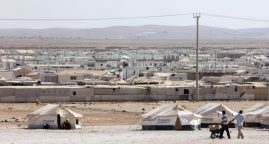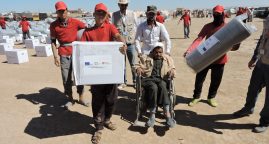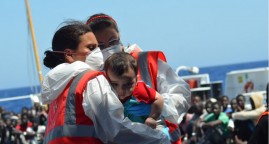Human Rights Council – 39th Session : Statement by Professor Michel Veuthey Ambassador of the Order of Malta to monitor and combat human trafficking
Geneva, September 10th 2018
Madame High Commissioner, Mr. President, Excellencies, Distinguished Delegates,
The Sovereign Order of Malta would like to thank Mrs. Urmila Bhoola, Special Rapporteur, for her very comprehensive Report on contemporary forms of slavery (A/HRC/39/52). We welcome her conclusions and would like to make three proposals in connection with her already very substantial report:
- Firstly, to mention the Guide on Article 4 of the European Convention on Human Rights on « Prohibition of slavery and forced labour », recently updated on 31 August 2018. This Guide describes the links between domestic servitude and slavery. It could be a useful inspiration for Governments and lawyers in Europe and beyond;
- Secondly, to highlight the importance of training: training labour inspectors, investigators, prosecutors and judges, border and police officers, and even flight attendants, about means of identifying victims and providing access to services for survivors of domestic servitude;
- Thirdly, not to forget the role of religious organisations both in denouncing modern forms of slavery (such as in the JOINT DECLARATION OF RELIGIOUS LEADERS AGAINST MODERN SLAVERY of 2 December 2014) and in providing local community-based services to survivors.
Thank you!
Related Articles
Ethics and state funding: the quest for independent humanitarian action
02/22/2017. The ethical analysis of state funding is designed to ensure the independence of humanitarian action. In situations of armed conflict, it must be dynamic and adapted to the context.
Malteser International | Iraq: distribution of emergency kits for displaced people
06/06/2017. Distribution of emergency kits for displaced people
H.E. Albrecht von Boeselager: The age of chivalry can show us how to help today’s refugees
12/23/2015. The Grand Chancellor of the Order of Malta expressed on the migratory crisis in Europe.






